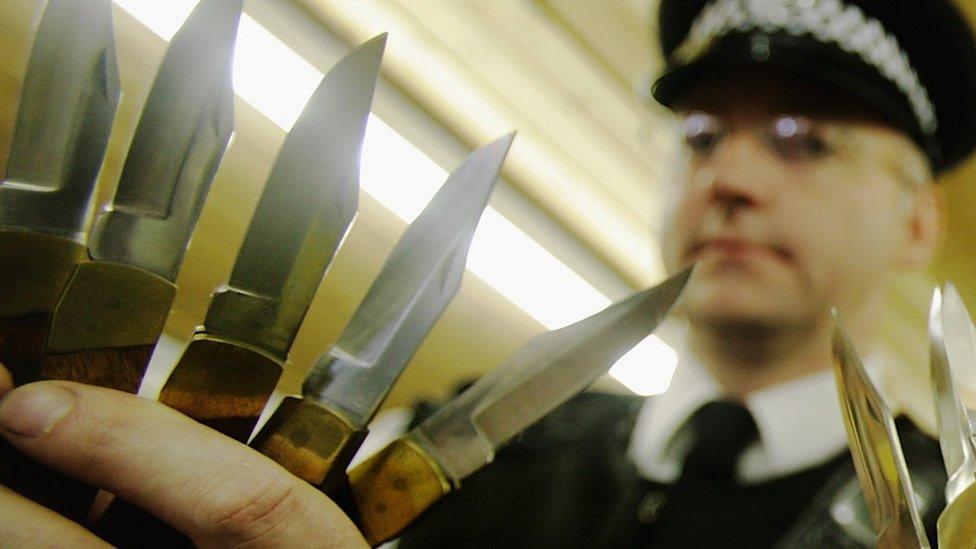Knife crime: Theresa May 'not listening' says ex-police chief
- Published
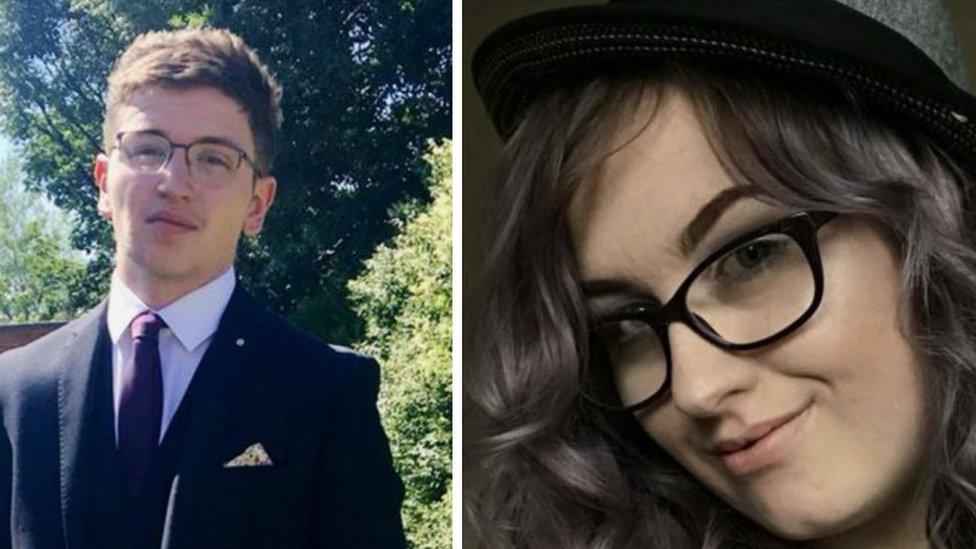
Yousef Makki and Jodie Chesney, both 17, were killed in separate knife attacks two days apart
Prime Minister Theresa May has not listened to police concerns about knife crime, a former head of the Metropolitan Police has said.
Mrs May said the deaths of young people were "appalling" as she announced an upcoming summit on knife crime.
But Lord Stevens told the BBC: "I don't think she listens, quite frankly, to what she's being told."
Labour leader Jeremy Corbyn said Mrs May was not doing enough to tackle the root causes of knife crime.
Senior party members, including London Mayor Sadiq Khan and shadow policing minister Louise Haigh, have written to the PM calling for 10,000 new police officers, external to help tackle youth violence.
On Wednesday afternoon a man, believed to be in his mid-20s, was fatally stabbed in Leyton, east London, police said.
The Met said it had launched a murder investigation and no arrests had been made.
Earlier, Home Secretary Sajid Javid called for knife crime to be treated "like a disease", and said "we have to listen to them [police] when they talk about resources".


The most awful political truth about the flare in knife crime is that it is so familiar.
From time to time, a flurry of terrible attacks emerges, the public is alarmed and politicians debate what can be done.
Frankly then, many of the solutions that are often put forward are familiar too. And for a time, genuinely trying to focus on this kind of violence is a prominent political priority.
But also familiar is the narrative where that focus then fades over time and the political grip is loosened. What's difficult for politicians grappling with it this time round is not just that the real solutions might take a long time to pursue and make real - that's a familiar truth.

Speaking on BBC Radio 4's World at One, Lord Stevens - who was commissioner of the Met between 2000 and 2005 - criticised Mrs May's handling of crime and policing as PM and when she was home secretary.
He said the Home Office had not been listening for the past five or six years.
"All you got from the Home Office, and in particular the home secretary at the time, now the prime minister, was 'our reforms are working'.
"She hasn't listened to what's been going on and it's not good enough."
Lord Stevens said he thought Mr Javid was the right person to see the crisis through and called for him to chair the upcoming summit on knife crime at 10 Downing Street.
"He's got the personality, he's got the empathy. He understands the difficulties on the streets and he understands the difficulties the police are facing."

The issue of knife crime was debated by Mrs May and Mr Corbyn during Prime Minister's Questions.
Mrs May began PMQs by saying any deaths through violence were an "appalling tragedy" and young people were dying in a "growing cycle of violence that has shocked us all".
The prime minister said she would hold a summit in No 10 in the coming days with ministers, community leaders and victims to explore what can be done.
But Labour leader Jeremy Corbyn accused her of not doing enough to tackle the "root cause" of the rise in knife crime and of trying to keep communities "safe on the cheap".
He said 285 people were stabbed to death last year in England and Wales - the "highest level ever" - before asking if she regretted "cuts in police numbers".
Mrs May replied: "We are putting more resources into the police this year - it's no good members on the opposition benches standing up and saying 'no you're not', it's a fact more money is being put into the police this year, that more money is being put into the police next year."

Analysis
BBC home affairs correspondent Danny Shaw
Theresa May served as home secretary for six years when forces in England and Wales faced deep budget cuts and - on her instructions - drastically reduced the use of stop-and-search.
That is why claims that a shortage of police resources and fewer searches have contributed to the surge in serious violence appear to be so uncomfortable for her.
If correct, it would mean her policies were in some way responsible.
In contrast, the current incumbent, Sajid Javid - whose brother is a chief superintendent in West Midlands Police - has no prior record at the Home Office to defend.
He won over officers at his first Police Federation conference - where Mrs May had once been booed and jeered - by promising more resources and backing the use of stop and search.
After today's meeting, he repeatedly said how important it was to "listen" to the police - a coded message to his boss, if ever there was one.

Earlier, Mr Javid met police chiefs from the seven forces in England and Wales most affected by violent crime, during which funding and stop-and-search powers were discussed.
The UK's top police officer, Cressida Dick, said there was "obviously" a link between violent crime and falling police numbers in England and Wales after Mrs May had previously insisted there was "no direct correlation".
Asked for his view, Mr Javid said: "I think police resources are very important to deal with this. We've got to do everything we can.
"I'm absolutely committed to working with the police in doing this. We have to listen to them when they talk about resources."
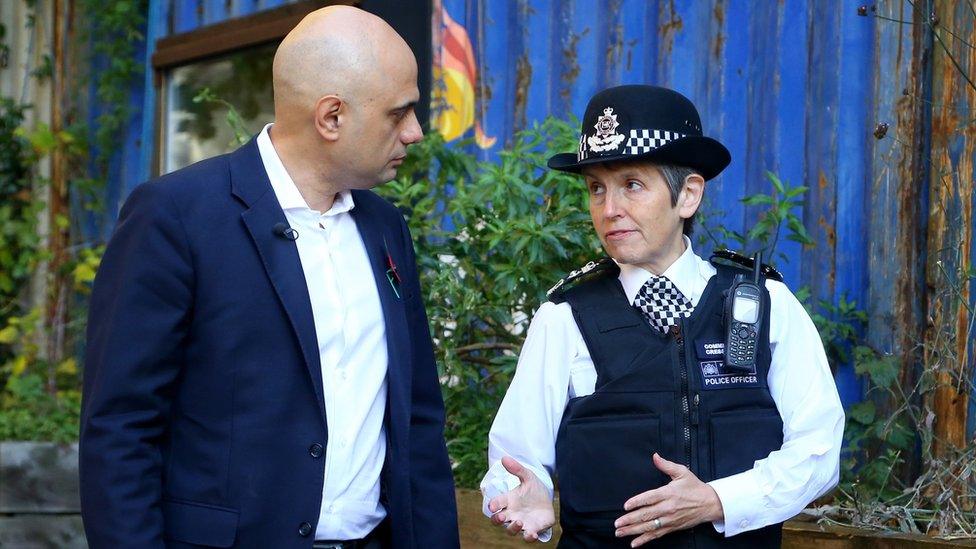
The home secretary said government needed to listen to police concerns about resources
He added: "I want serious violence to be treated by all parts of government, all parts of the public sector, like a disease, and I want us to tackle it the same way - everyone would come together."
The former mayor of London, Boris Johnson, told the BBC the police need to feel supported over the use of stop and search.
In 2014, Mrs May restricted the use of the tactic as home secretary, arguing that it undermined public confidence in the police when it was misused.
But Mr Johnson said: "What the police want to hear is this is something that is actively supported, and they'll be backed up in showing real determination in cracking down."
Yvonne Lawson: I lost my son to knife crime - here's my advice for parents
Two 17-year-olds were killed in separate stabbings in London and Greater Manchester at the weekend.
Jodie Chesney was killed in an east London park as she played music with friends, and Yousef Ghaleb Makki was stabbed to death in the village of Hale Barns, near Altrincham.
A 17-year-old boy - who cannot be named for legal reasons - has been charged with the murder of Yousef and has been remanded in custody.
Speaking about Yousef's death, Greater Manchester Mayor Andy Burnham said he supported an increase in the use of stop and search by police, even though it was "controversial".
"If there are more young people carrying knives, it follows there needs to be more people apprehended," he told BBC Radio Manchester.
Meanwhile, the Metropolitan Police said a man had been arrested in Leicester in connection with the murder of Jodie.
In Lancashire, six people have been arrested over a gang attack at a sixth form college. A machete was found near Runshaw College in Leyland, following Monday's incident.
Police officer numbers in England and Wales have dropped by just under 20,000 since 2010, external, while levels of violent crime have risen in recent years.
Figures released in February showed the number of fatal stabbings in England and Wales last year - 285 - was the highest since records began in 1946.
In Scotland - where homicides fell from 2005 to 2017 - police numbers have risen from 16,234 officers in March 2007 to 17,175 in December last year.

Sorry, your browser cannot display this map
- Published6 March 2019
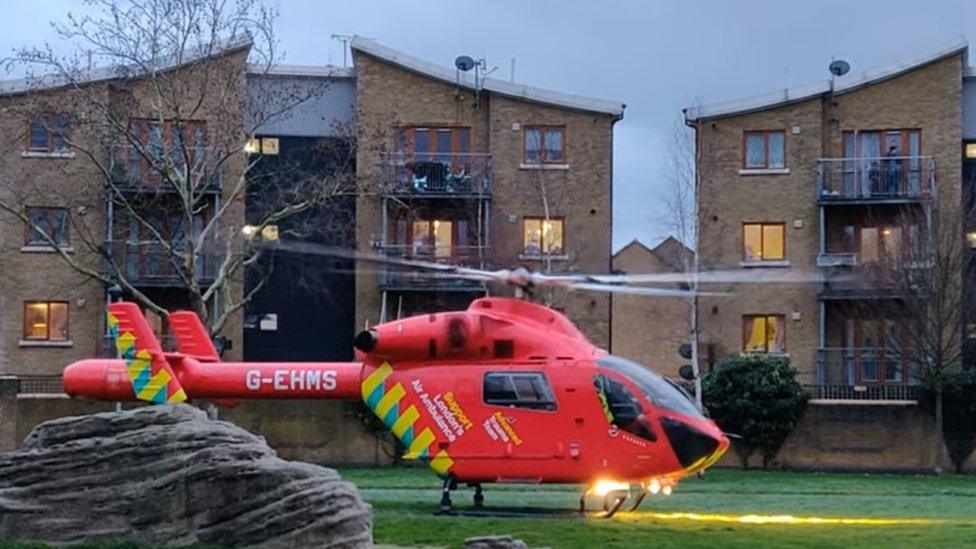
- Published6 March 2019
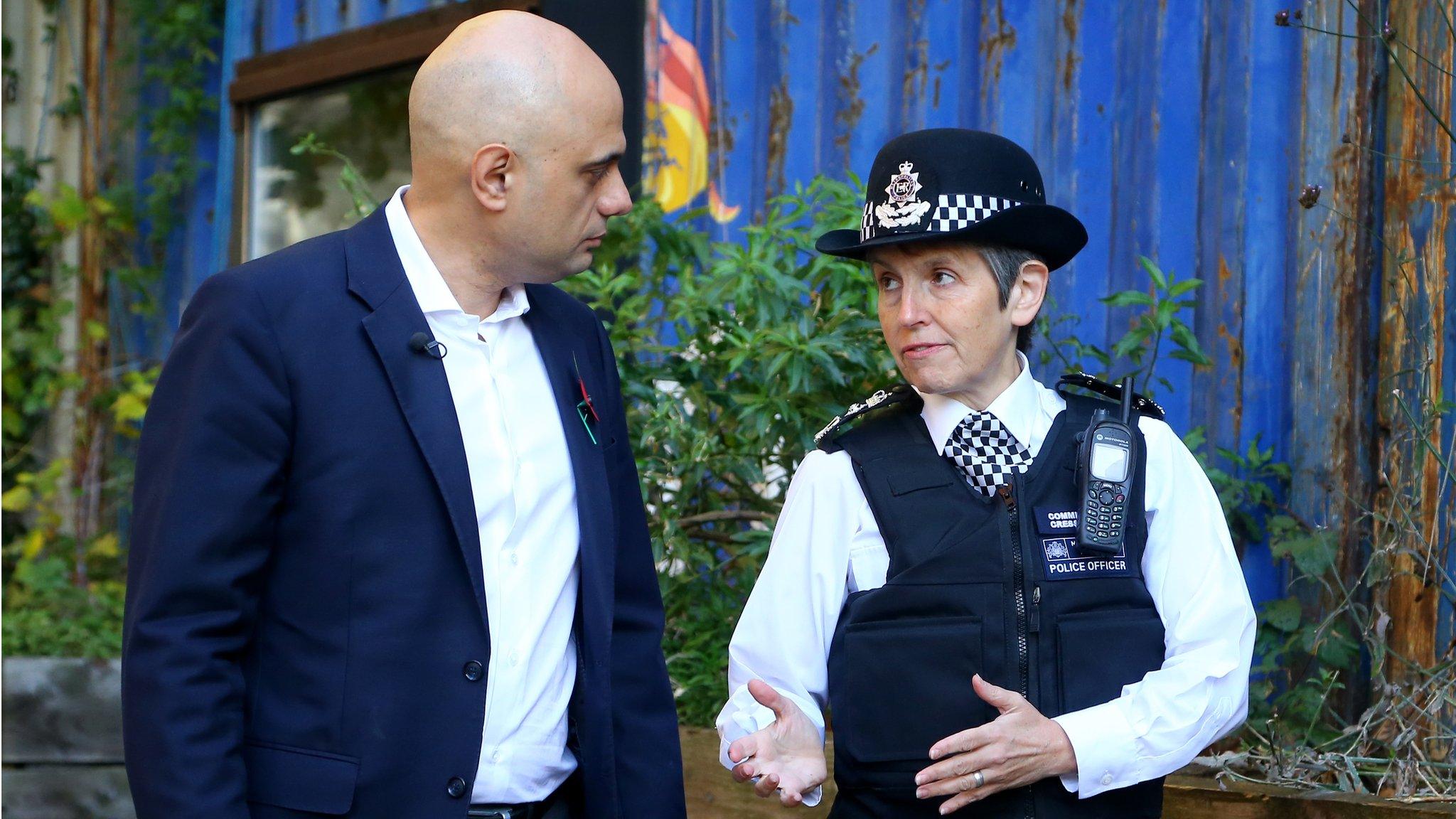
- Published5 March 2019
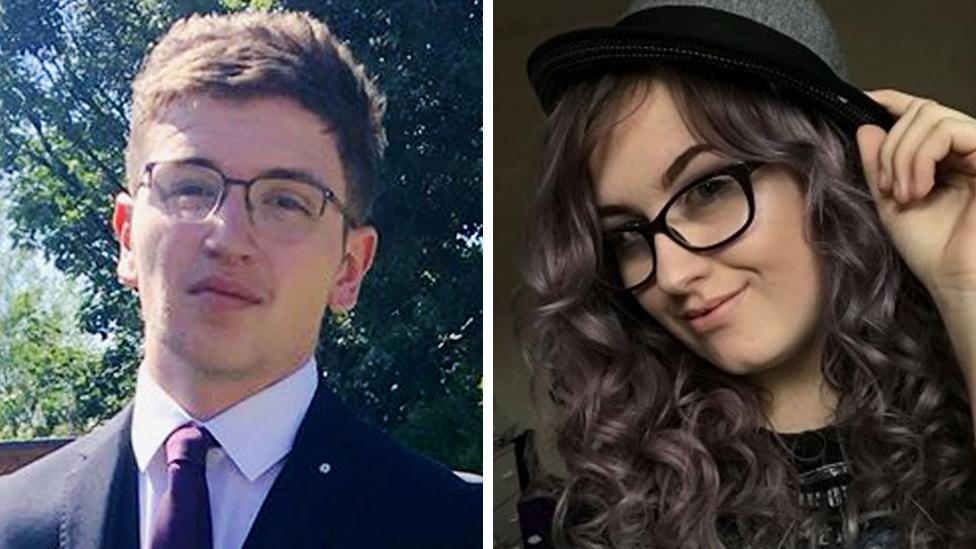
- Published5 March 2019
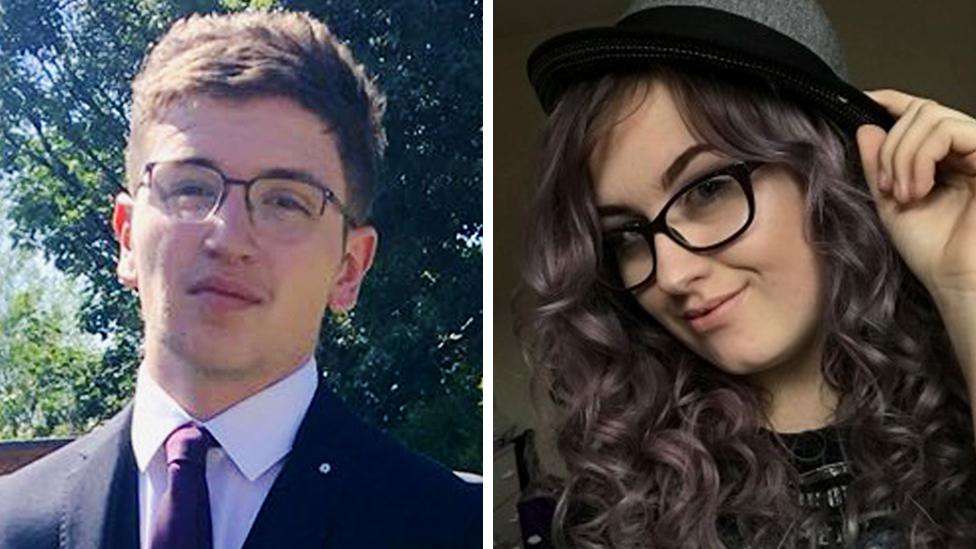
- Published4 March 2019
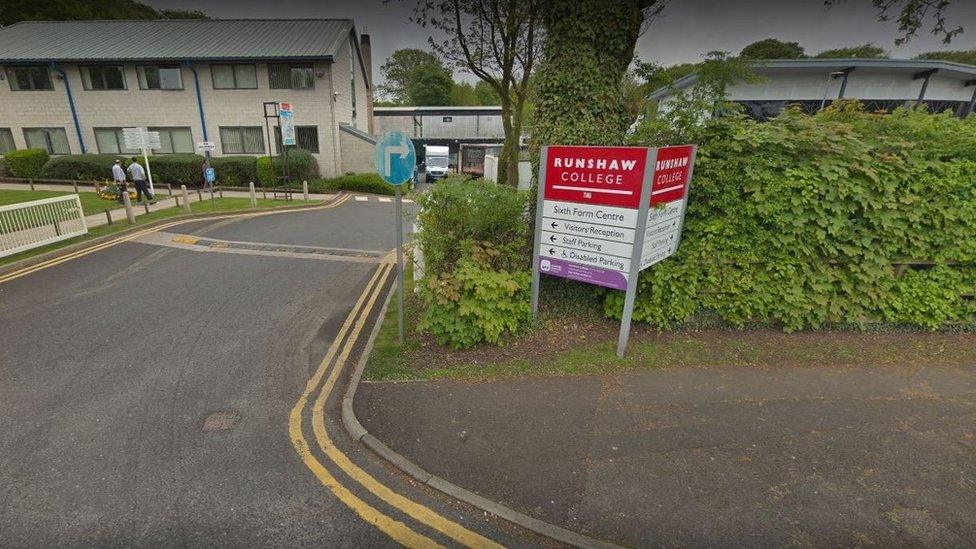
- Published4 March 2019
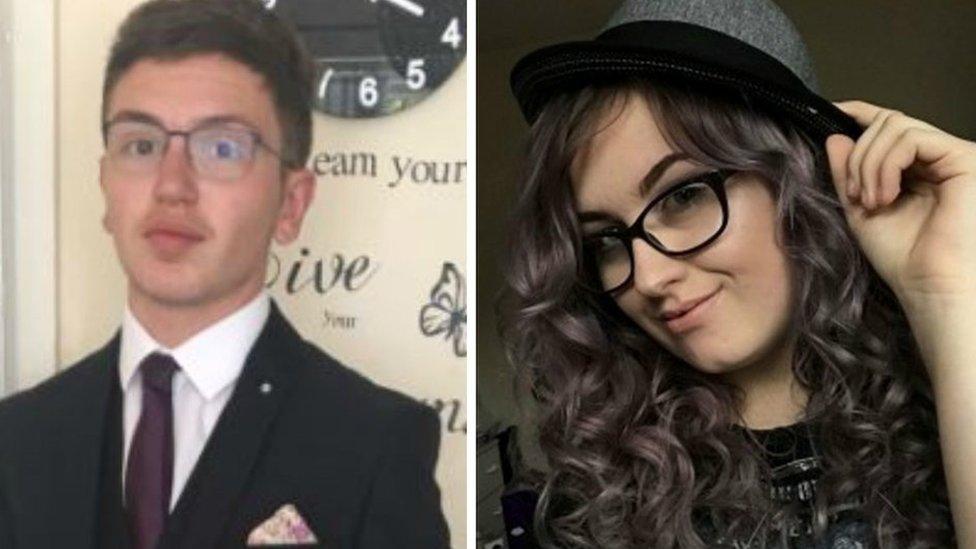
- Published4 March 2019
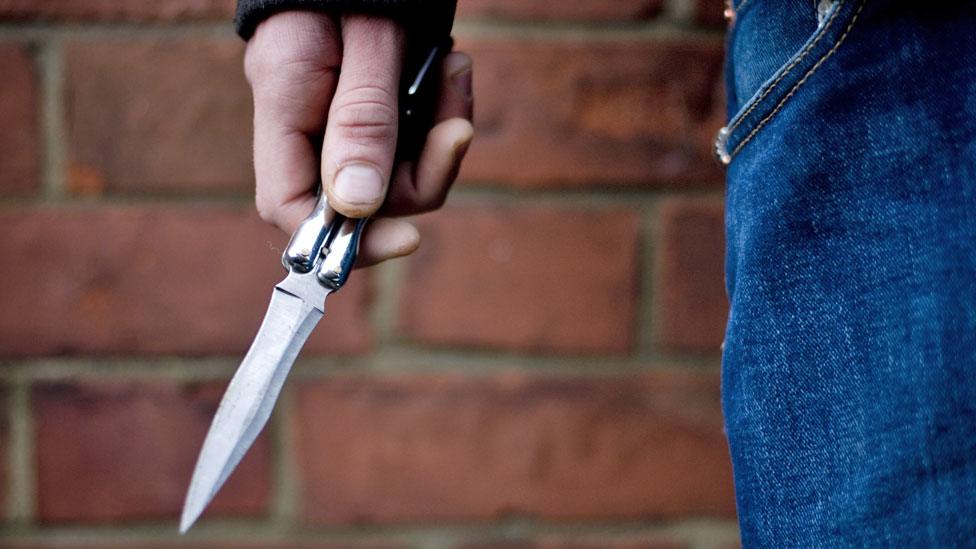
- Published27 February 2019
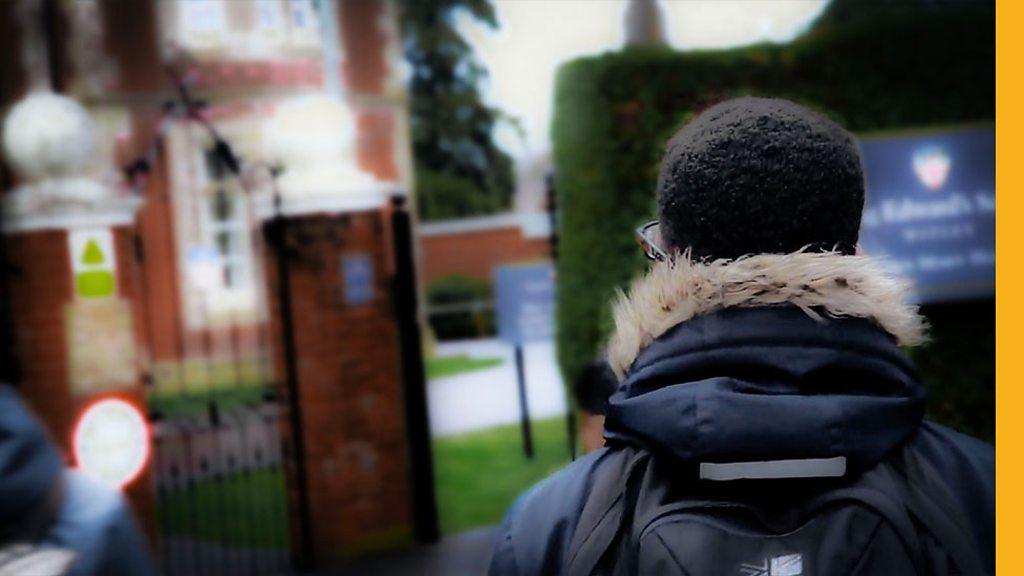
- Published13 February 2019
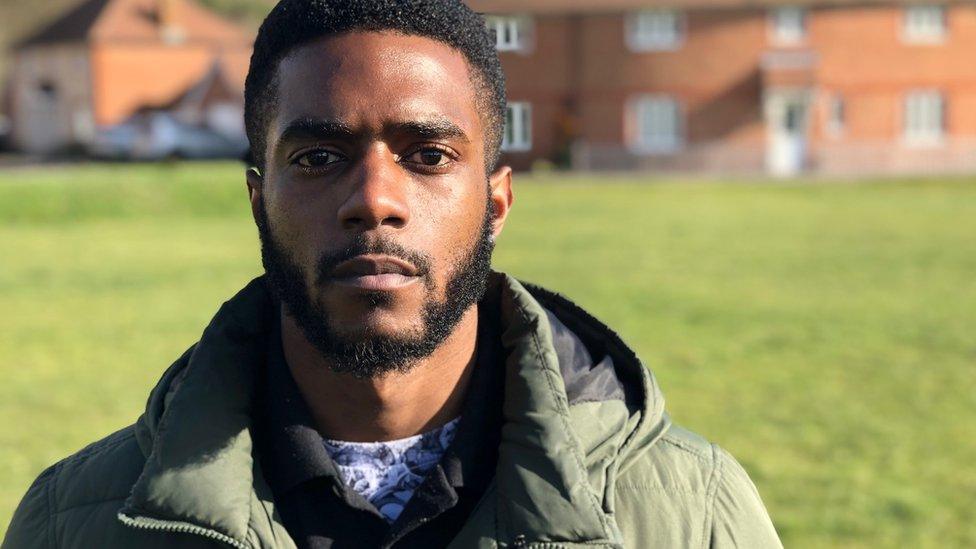
- Published26 July 2019
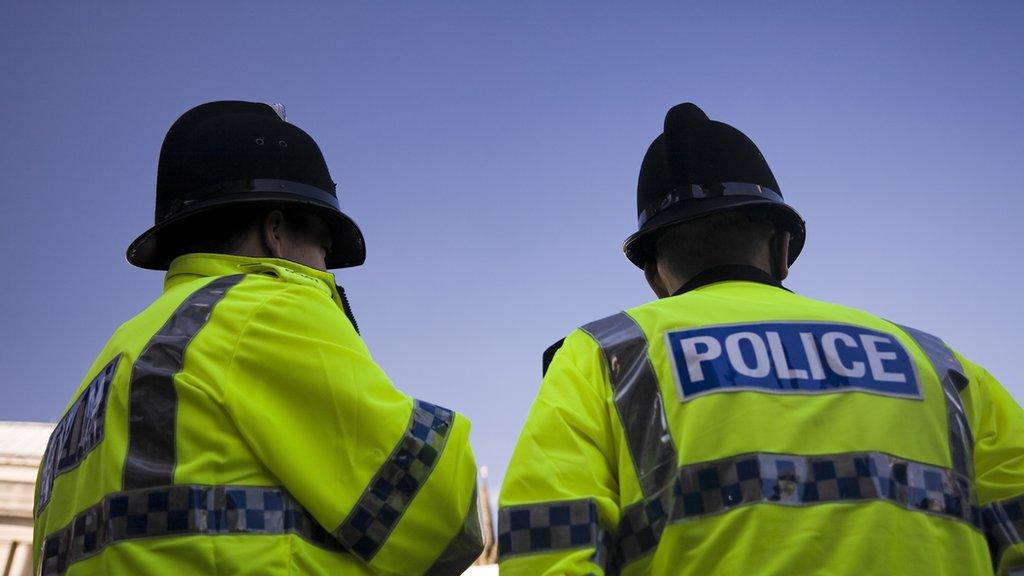
- Published7 February 2019
